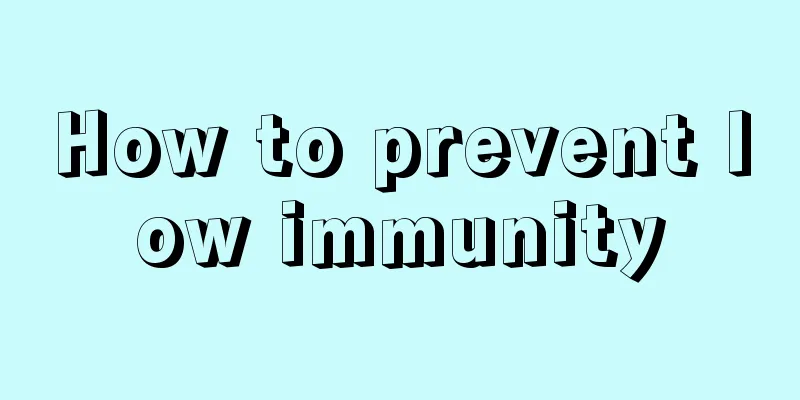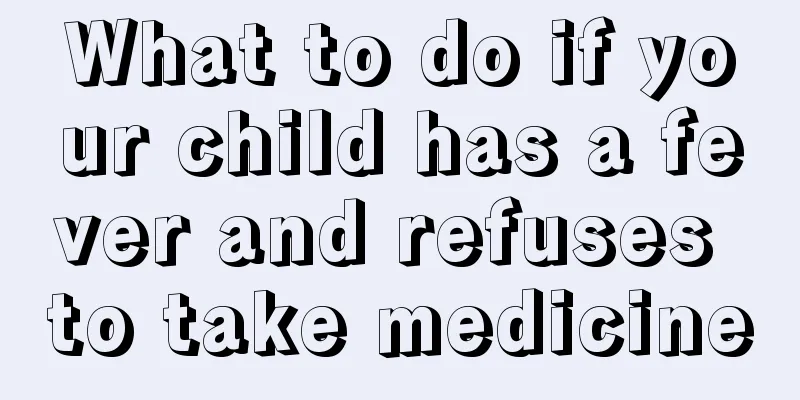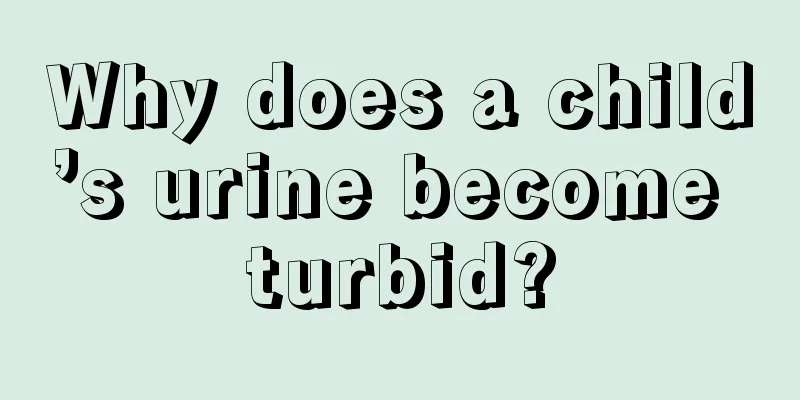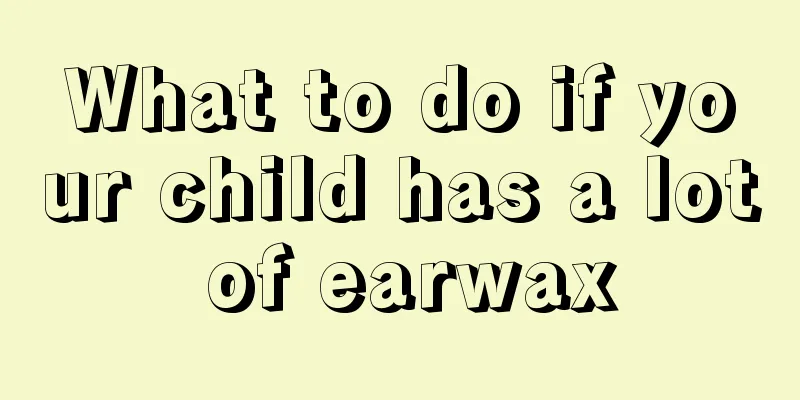How to prevent low immunity

|
Many parents are very worried about their children's health and always rush to the hospital whenever they have a serious or minor illness. In fact, there is no need for this, because most of them are minor illnesses such as colds and fevers, which can be cured by taking medicine or getting an injection. Serious cases require intravenous infusion. Ultimately, these symptoms are caused by low immunity in children. Especially for children under the age of eight, they are in the stage of growing up. Low immunity will make them sick, lead to malnutrition and affect their development. Low immunity is a problem that many people currently have. Low immunity makes it easy to get sick and has no ability to defend against external bacteria. Adults are generally fine, but low immunity mainly occurs in infants and young children. How to enhance the immunity of infants and young children? This is perhaps the most talked about health topic. So how can we enhance the immunity of infants and young children? What kind of scientific awareness should people establish in this regard? Parenting experts say: The immune system of a 6-month-old baby is still imperfect, the active immune ability is poor, the immunity provided by the mother is limited, and the immunity of a baby under 2 years old is less than half of that of an adult; this is medically called the "physiological immune function unsafe period." As children grow older, their immune functions gradually mature. The antibody concentration in the immune serum of children over 3 years old is close to that of adults. After the age of 8, the resistance of the entire immune system is comparable to that of adults. Immunodeficiency can be divided into three types: congenital immunodeficiency, acquired secondary immunodeficiency and physiological immunodeficiency. The first two are pathological and require treatment. Physiological immunodeficiency generally does not require medication or even treatment. The low immunity of infants and young children is caused by the following nine reasons: (As long as you pay attention to it, you can prevent it well) 1. Poor environment, such as air pollution or passive smoking, causes polluted air to enter the respiratory tract and affect the ventilation function of the lungs. 2. Lack of vitamins and trace elements, such as calcium and vitamin D, can lead to malnutrition and decreased resistance in infants and young children. 3. Suffering from congenital diseases such as congenital heart disease, congenital pulmonary dysplasia, etc. 4. Infants and young children with immunodeficiency diseases are born with a lack of certain antibodies or synthetases. In clinical practice, due to incomplete testing items and the lack of conditions in general hospitals, they cannot be detected. 5. Misusing antibiotics regardless of whether the condition requires it or not, and changing them multiple times, will cause drug resistance and disrupt some balances in the human body. 6. Stopping medication without authorization After becoming ill, if the course of treatment is insufficient, or if medication is stopped without authorization, such as as soon as the fever subsides, the bacteria will remain dormant for a long time, and once you catch a cold, it is easy to cause illness. 7. Abuse of hormones. Some caregivers do not understand the mechanism of fever and wish to cure the disease with just one dose of medicine. Some doctors are impatient with the nagging of caregivers or are afraid of losing patients due to lack of trust in them, so they use hormones on infants and young children. Over time, the children become dependent and their immune function is affected. 8. Clinical misdiagnosis, such as infantile asthma, especially a type called cough variant asthma, is the easiest to misdiagnose. The symptoms of infants and young children are very similar to those of colds or pneumonia. Colds and coughs occur repeatedly, and they are always treated as colds, with only temporary relief. It should also be noted that tuberculosis has also been on the rise in recent years, so it is imperative to make a timely diagnosis. 9. Bad habits We have found that some infants and young children who eat before going to bed or fall asleep with a bottle in their arms are also prone to catching a cold; children who do not brush their teeth or rinse their mouths are most likely to have a sore throat. These will cause the immunity of infants and young children to decline. Therefore, I would like to remind all parents and friends here to provide their children with more nutrition and vitamins to enhance calcium absorption. In the season when colds are common, you must pay attention to keeping warm and paying attention to details such as hygiene. This can help prevent colds and bacterial infections to some extent. But the most important thing is to improve children's own immunity. I hope all parents will pay more attention and observe. |
<<: What to do if your child has a red butt
>>: Winter health care for children
Recommend
The dangers of having a newborn baby living in a new house
For newborns, it is best not to live in a new hou...
Treatment and cost of erythema in the corners of newborn eyes
Red spots in the corners of the eyes of newborns ...
At what age do children start to change their teeth?
After the baby is born, teeth will slowly grow. T...
What should I do if I am allergic to a vaccination?
Getting vaccinations may seem like a hassle, but ...
Why does the skin peel off on newborns?
Newborn babies are very cute. If they do not rece...
How to treat phlegm in children's throat
Children are more likely to get sick in the summe...
What should children eat to get rid of dampness?
Not to mention babies, even adults like us have d...
How to treat chronic rhinitis in babies?
I believe many friends have heard of chronic rhin...
How to prevent children from getting body odor? These knowledge points must be remembered!
No matter who you are, once body odor occurs, it ...
Can newborns use humidifiers?
In winter, many people like to use humidifiers, e...
What calcium tablets are good for a six-year-old child?
Calcium supplementation is very important for chi...
Symptoms of hip dislocation in children
We all know that children are particularly prone ...
Stool color and precautions for mixed-feeding babies
The color of the stool of babies who are mixed-fe...
How to treat communicating hydrocele in children
Some sudden symptoms of a child's body may ca...
What to do if your baby's eyes are yellow? Timely treatment is the key
Newborn babies are generally very weak and can ea...









